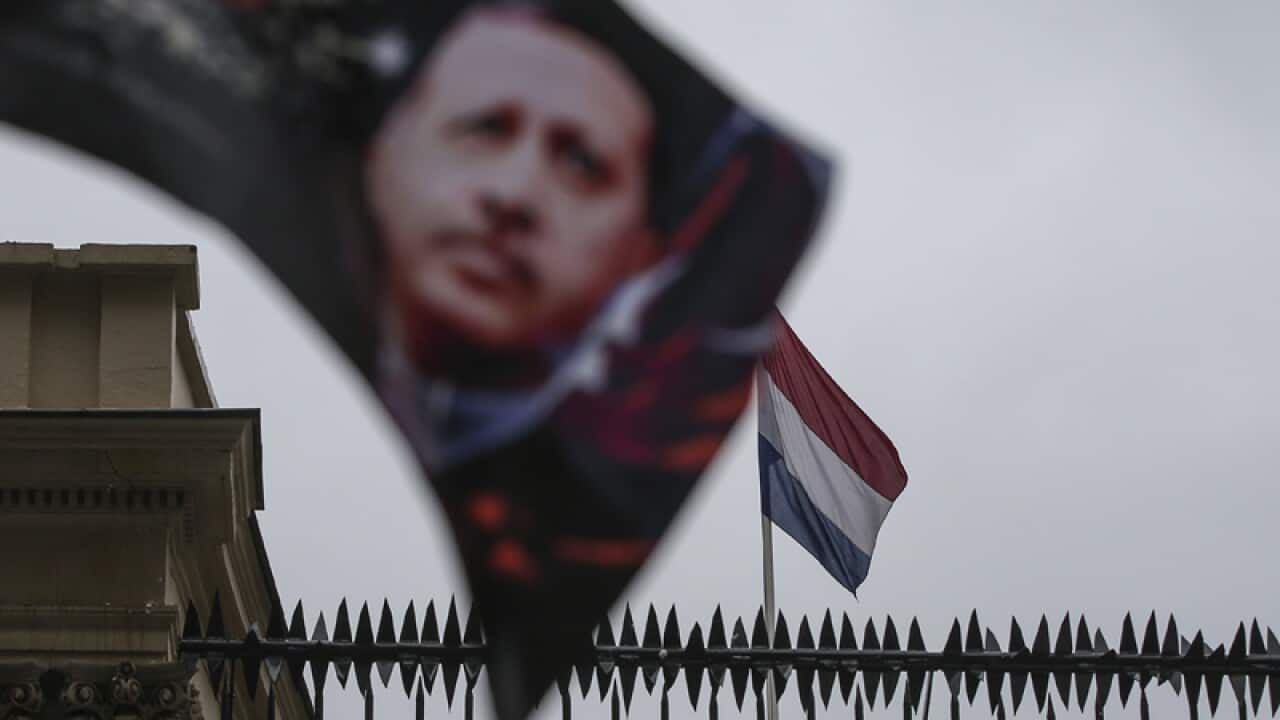As voting commences in the Netherlands following a tight, fierce campaign to lead the country between the centre-right Prime Minister, Mark Rutte, and anti-Islam firebrand Geert Wilders.
But it won’t be until Thursday Australian time that the results are known.
With major parties expected to suffer significant losses, many voters have said they are yet to make up their minds on who to support in a race featuring 28 parties.
“It’s really unpredictable, it’s really hard to say,” said Dr Carolien van Ham, a Dutch lecturer in politics at the University of NSW.
“It’s like looking into thick coffee, as we would say.”
Polls show that Mark Rutte’s VVD party retains a narrow lead in a tight, multi-party race. Mr Wilders slipped behind in the final week of February.
“But normally the polls are a bit off for the PVV, so they still might end up the largest party,” Dr van Ham said.
Whoever takes the most seats in the 150 seat parliament is customarily given the first chance to form a coalition government. The prime minister’s party is expected to net roughly 26 seats, with Mr Wilders’ Party for Freedom expected to come in second place with 21 seats.
The prime minister’s party is expected to net roughly 26 seats, with Mr Wilders’ Party for Freedom expected to come in second place with 21 seats.

The Peilingwijzer seat forecast, based on aggregated polling. Source: Peilingwijzer
But several minor parties aren’t far behind – the conservative Christian Democratic Appeal (CDA), centrist Democrats 66 (D66), and the Green Left are each expected to net between 16 and 21 seats each.
“It’s really, really close, I think we haven’t had such a close election for a long time, so it will all depend on turnout,” Dr Van Ham said.
Leftist parties are counting on younger voters to show up, while the far-right will be relying on rural, working class voters to make their way to the polls.
Dr Stijn van Kessel, a Dutch political lecturer at Loughborough University, says the dominance of cultural issues and a flare up between Turkey and the Netherlands .
Dr Van Ham says that while it may have motivated PVV supporters to go to the polls, Prime Minister Rutte’s firm handling of the diplomatic spat may have neutralised the issue.
“The way the prime minister dealt with this issue – being very forceful, being very clear – might have brought some voters back to the PVV from the VVD,” she said.
Polls over the past two weeks show Mr Wilders’ PVV has been hemorrhaging support, while the CDA and left-wing Socialist Party have seen late-campaign boosts.
The socialists expected to receive 15 seats. The Green Left and D66 have seen a rise in support during the campaign, while the senior citizens’ party – 50 Plus – has seen their fortunes fail.
The Green Left and D66 have seen a rise in support during the campaign, while the senior citizens’ party – 50 Plus – has seen their fortunes fail.

A selection of major parties support levels over the past 12 months (via Peilingwijzer). Source: Peilingwijzer
But the biggest loser is set to be the country’s Labour Party, on track to lose more than half their seats, ending the campaign as unpopular as ever.
Governing in coalition with the centre-right VVD, the Labor party has seen its fortunes plummet and flat-line since taking 38 seats in the 2012 elections.
Dr van Ham says Labour has been crippled by its junior-status in the coalition and a centrist approach in an election which favours bold action.
“They have a leader who is popular, but he’s a very nuanced man, and I don’t think that helps very much in this election,” she said.
“They have two strong competitors on the left which are taking over their votes basically.”
Like Labour parties around the world, she says the Dutch party has struggled to reconcile support for immigration and economic liberalism with their working-class voter base.
For his part, Prime Minister Rutte has urged the Dutch to take the election seriously and be cautious about registering a protest vote.
“Remember the Brexit. We all thought that would never happen. Remember the US elections?” the Prime Minister told reporters in Rotterdam.
Whatever the outcome tomorrow morning Australian time, protracted negotiations are expected.
The sheer array of parties likely to be represented, and their wide range of ideological positions, will make for complex negotiations – particularly given all major parties have sworn to exclude Mr Wilders from consideration.
Watch the explainer on the Dutch election:















